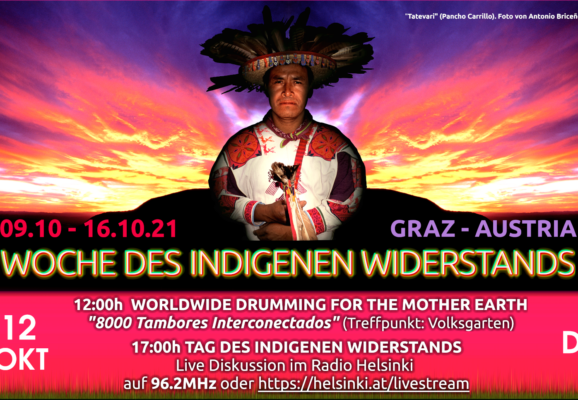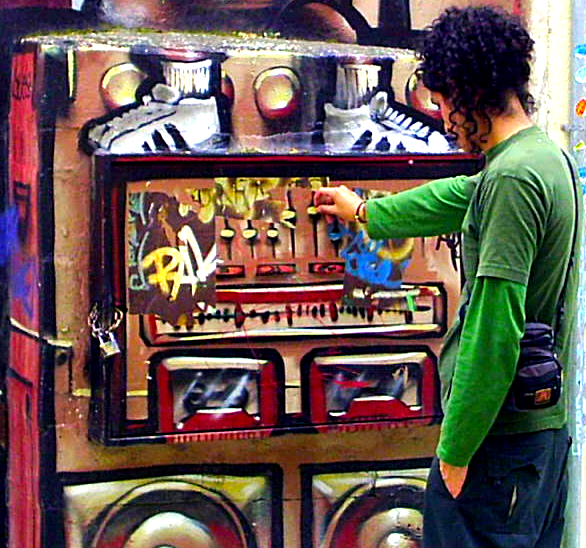12th October 1492 is registered in many books as the day when “America” was discovered. As the land was already inhabited from indigenous people, one could say that the only thing the Europeans discovered was that they were not alone in the World. It was the beginning of a massive expropriation, subjugation and abuse of the indigenous people rights of a whole continent and its impact changed the human history.
However, not only in America existed indigenous people, and despite of the colonization process in different continents, many of them still survived. Even today they are still resisting and fighting to preserve their identity, languages, their land, and their lifestyle and philosophy as well. Thus, 12th has becoming a day where different Indigenous People worldwide refuse to celebrate that they were colonized. Instead, they celebrate the Day of the Indigenous Resistance.
INRICO (Indigenous Rights Collective) organizes every year together with Radio Helsinki (Freies Funkhaus Radio) a live discussion with international guests that have an important relationship with indigenous peoples. Topics to discuss are Colonization and Neo-Colonialism, Ancestrality, Ecology, Cultural Heritage, Mestizo Identity, Indigenous Territories and Natural Resources.
Guests:
Ana Barón. She was born in Colombia but also lived in different countries and learned from different cultures. She studied Linguistics in the University of Bogotá . She is being part of the Re-awakening of the Indigenous People Muisca. She got knowledge from old indigenous persons in Colombia. Currently she’s living in Austria serving kindly as a bridge between cultures.
Peninah Lesorogol. Representative woman of the Samburu indigenous people (Kenia), was the first woman on her Village who went to the School, and also the first one to attend the University. She lives currently in Graz with her family and is involved in different cultural projects related with indigenous people and women-empowerment. She leads also her own costume/jewerly business with Samburu/masai motives supported and manufactured by his indigenous community.
Prince Desmond Elliott Edegbe. . Born in Benin (Nigeria) is the austrian coordinator of OGBK (Organization of the Great Benin Kingdom). The Benin Kingdom was one of the oldest and developed states in the coastal hinterland of Africa. The Edo or Benin people speak the Edo language and are the descendants of Igodomigodo, which evolved to become the Benin Empire (which itself existed from around 1180 until 1897).
Christian Cwik. History teacher in the University of Graz, works in the Center of Inter-american Studies. Founder member of the Organisation Konak (Cultural Research Asociation for the American Continent and Caribe). His specialisation are topics related to Latinamerica, Caribe and Atlantic. He also wrote about 100 Article and Book chapters about Slavery and Resistance in America, Independence and European Migration.
Moderation: Manuel Amarusunqu
Organisation and Support in Radio:
Peter Petz , Sascha Vanicek
Peter Petz , Sascha Vanicek
Sound and technical Support:
Jürgen Schweitzer
Jürgen Schweitzer




















